Literary rating: ★★
Kick-butt quotient: ☆☆½
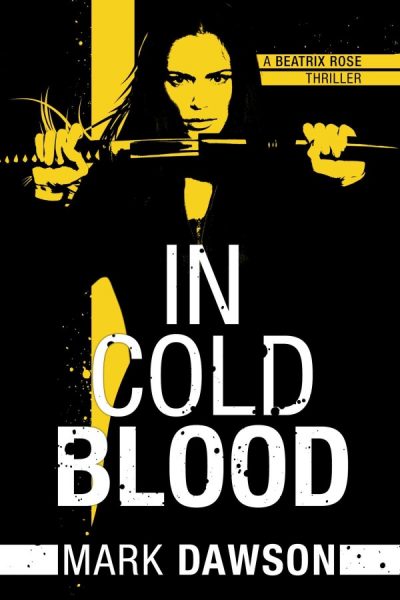 Stop me if you’ve heard this before. A woman called Beatrix, who has made her living as a killer for a shadowy group, find herself betrayed by them, with her husband killed and daughter kidnapped. Escaping their clutches years later, she vows to take revenge on them, one at a time, working up the chain to find the man who ordered the heinous deeds. Yeah, this sounds just a little like Kill Bill, doesn’t it? Indeed, the cover sports a black and yellow color scheme, clearly designed to evoke the Bride’s jumpsuit – and at no point does the heroine here wield a Samurai sword. It’s all so blatant that I can only presume it was done deliberately, though there are certainly some differences.
Stop me if you’ve heard this before. A woman called Beatrix, who has made her living as a killer for a shadowy group, find herself betrayed by them, with her husband killed and daughter kidnapped. Escaping their clutches years later, she vows to take revenge on them, one at a time, working up the chain to find the man who ordered the heinous deeds. Yeah, this sounds just a little like Kill Bill, doesn’t it? Indeed, the cover sports a black and yellow color scheme, clearly designed to evoke the Bride’s jumpsuit – and at no point does the heroine here wield a Samurai sword. It’s all so blatant that I can only presume it was done deliberately, though there are certainly some differences.
Not the least of which is the cancer from which Beatrix Rose is suffering, putting an expiration date on her quest. She also has rather more official sanction, since the group in question was part of British intelligence. Since they’re keen for the group’s former head, Control, to be taken out of play, due to what he knows, she still receives help from them, albeit in a thoroughly deniable way. Much of this book is concerned with the hijacking of a cargo ship by Somali pirates, since one of her targets is working as security on the vessel; they’re subsequently held hostage by Islamic terrorists. This complicates her mission significantly, and the action mostly consists of Beatrix infiltrating Somalia, in order to extract her vengeance under cover of the confusion caused by a SEAL rescue mission.
I liked the heroine, even if the nature of her grievance is kept somewhat obscure (I would presume it is revealed in more detail, either later in the series or in one of the three prequels. Alternatively, it may be revealed in another of the author’s works, the John Milton series). She is motivated by a fierce love for her daughter, with whom she has been re-united and whom she is now training – I suspect this will come into play down the road, too – and there’s absolutely no doubt about her competence. Given her ticking clock, there’s no time for romance here, but it still feels like the story is being stretched out; the pages devoted to the hostages add little or nothing to the story we care about.
To be honest, at $4.49 (or $22.45 for the five-ebook set), it’s not particularly good value, considering it comes in at less than 190 pages, excluding the inevitable preview of volume 2. I only picked it up following an accidental purchase of Kindle Unlimited for six months. If you have that, it is probably worth a read, and if time permits, I may end up going deeper into the series, since further volumes (mostly $4.99 each) are included in my KU subscription. It’s not dull, certainly. However, the majority of people are likely better off watching Kill Bill: The Whole Bloody Affair, which offers just as much mayhem, for considerably less time and expense.
Author: Mark Dawson
Publisher: Amazon Digital Services, available through Amazon, both as a paperback and an e-book
1 of 5 in the Beatrix Rose series.





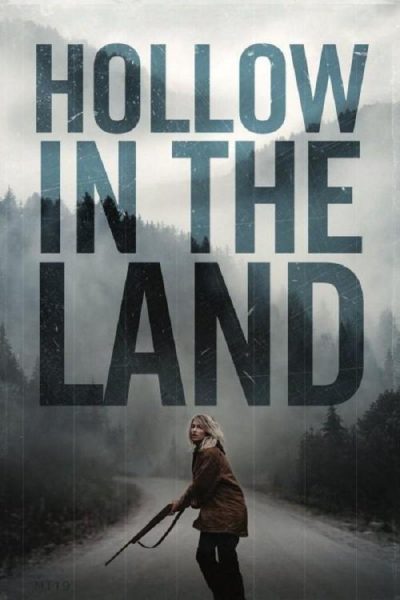 This feels like a Canadian version of
This feels like a Canadian version of 
 Natalia Nicolaeva in a 19-year-old, living with her parents on a farm in Transnistria, which I imagine most people would be hard-pushed to find on a map. Per Wikipedia, “it is a breakaway de facto state in a narrow strip of land between the river Dniester and the Ukrainian border that is internationally recognized as part of Moldova.” Now you know. She lets her friend, Sonia, convince her into taking up a job offer overseas which – probably inevitably – turns out to be the gateway to them becoming the victims of sex traffickers, imprisoned in a Turkish brothel. Natalia manages to escape, though pays a heavy price, and the man in charge of the gang, Goran Zigic, has not forgotten her either.
Natalia Nicolaeva in a 19-year-old, living with her parents on a farm in Transnistria, which I imagine most people would be hard-pushed to find on a map. Per Wikipedia, “it is a breakaway de facto state in a narrow strip of land between the river Dniester and the Ukrainian border that is internationally recognized as part of Moldova.” Now you know. She lets her friend, Sonia, convince her into taking up a job offer overseas which – probably inevitably – turns out to be the gateway to them becoming the victims of sex traffickers, imprisoned in a Turkish brothel. Natalia manages to escape, though pays a heavy price, and the man in charge of the gang, Goran Zigic, has not forgotten her either.
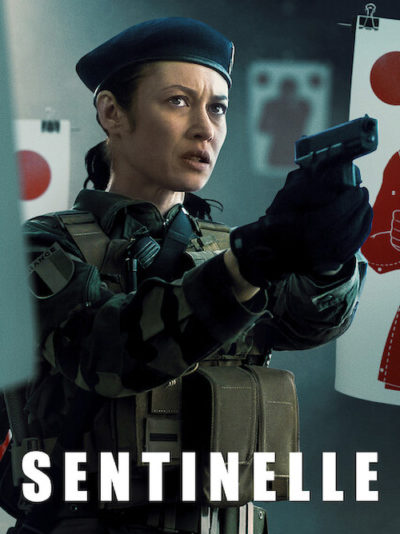

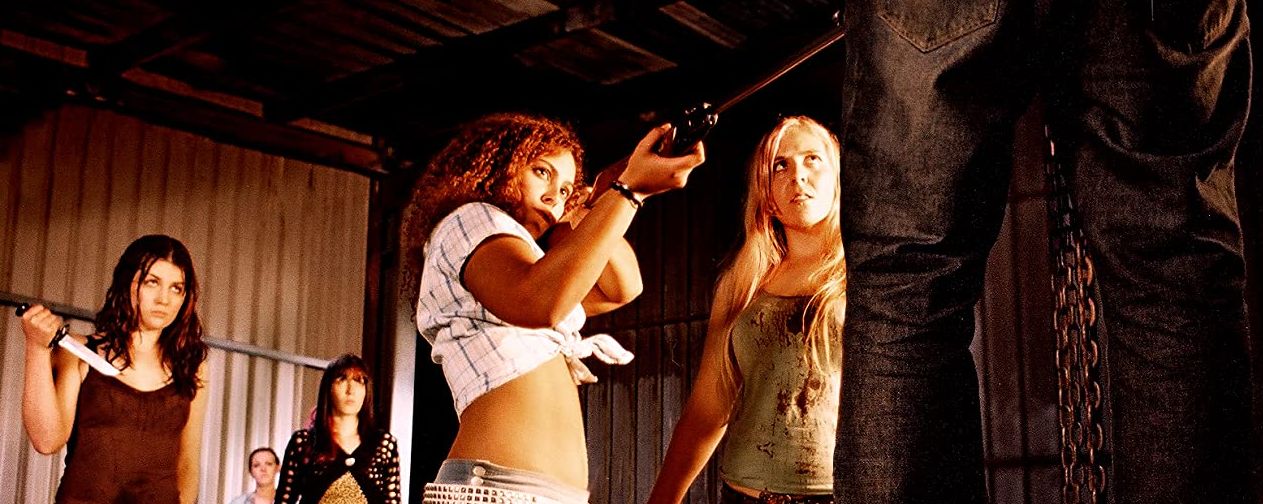 ★★★½
★★★½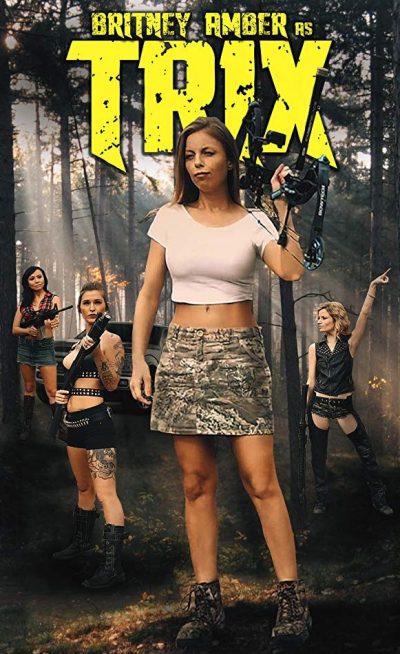 Maybe I’m getting too old for this kind of thing. Perhaps there was a time in my callow youth when I would have been grateful for the light-to-moderate amount of gratuitous nudity which this contains. Now, though? Its flaws overwhelm any such merits. Or maybe it was the fact that I watched this while dozed up to the eyeballs on DayQuil, and frankly, coughing up phlegm proved to be a more satisfactory pursuit.
Maybe I’m getting too old for this kind of thing. Perhaps there was a time in my callow youth when I would have been grateful for the light-to-moderate amount of gratuitous nudity which this contains. Now, though? Its flaws overwhelm any such merits. Or maybe it was the fact that I watched this while dozed up to the eyeballs on DayQuil, and frankly, coughing up phlegm proved to be a more satisfactory pursuit. After an incident where she shoots dead a woman armed only with a toy gun, Marie (DeCianni) quite the police force to become a housewife. However, her husband, Barry (Spadaro), has some dodgy friends, in particular, Nadi (Regina, who also co-wrote this), a man with ties to organized crime. Barry falls behind on payments, and an unfortunate car “accident” befalls him: a recent large life-insurance policy named Nadi as the beneficiary. It’s all very shady, as Marie’s old police captain (Session) admits. However, there is just not enough evidence for the authorities to take action. That’s not an issue for Marie, however, who decides to take revenge for the loss of her husband, against Nadi and his associates.
After an incident where she shoots dead a woman armed only with a toy gun, Marie (DeCianni) quite the police force to become a housewife. However, her husband, Barry (Spadaro), has some dodgy friends, in particular, Nadi (Regina, who also co-wrote this), a man with ties to organized crime. Barry falls behind on payments, and an unfortunate car “accident” befalls him: a recent large life-insurance policy named Nadi as the beneficiary. It’s all very shady, as Marie’s old police captain (Session) admits. However, there is just not enough evidence for the authorities to take action. That’s not an issue for Marie, however, who decides to take revenge for the loss of her husband, against Nadi and his associates. Firstly, I’m still trying to figure out the relevance of the cover (right). With a heroine named Kat, why is there a dog pictured? It’s not as if she even owns one at any point. The “size of the fight” line… well, tenuous at best. I should probably have listened to my instincts and skipped this frankly implausible tale, about a teenage girl who is smart, attractive and a black-belt martial artist with 34E breasts. Yet she ends up having to get work as a stripper, a job at which she is naturally brilliant (thanks to adopting a pseudo-Xena persona), in order to keep her alcoholic mother out of debt. She breaks the arm of a particularly unpleasant customer, Alex, an act which gets her the attention of Alex’s business partner. He runs McKenzie Personal Security, and offers Kat a job as a trainee bodyguard.
Firstly, I’m still trying to figure out the relevance of the cover (right). With a heroine named Kat, why is there a dog pictured? It’s not as if she even owns one at any point. The “size of the fight” line… well, tenuous at best. I should probably have listened to my instincts and skipped this frankly implausible tale, about a teenage girl who is smart, attractive and a black-belt martial artist with 34E breasts. Yet she ends up having to get work as a stripper, a job at which she is naturally brilliant (thanks to adopting a pseudo-Xena persona), in order to keep her alcoholic mother out of debt. She breaks the arm of a particularly unpleasant customer, Alex, an act which gets her the attention of Alex’s business partner. He runs McKenzie Personal Security, and offers Kat a job as a trainee bodyguard.